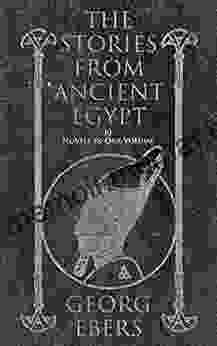An In-Depth Analysis of Constantinian Religious Policy: Unraveling the Impact on Early Christianity

The reign of Constantine the Great marked a watershed moment in the history of Christianity. Through his groundbreaking policies, Constantine transformed Christianity from an obscure and persecuted sect to a legitimate and eventually dominant religion within the vast Roman Empire. This article delves into the key events, motivations, and consequences of Constantine's religious policies, shedding light on their profound impact on the development of Christianity and the enduring relationship between church and state.
5 out of 5
| Language | : | English |
| File size | : | 2037 KB |
| Text-to-Speech | : | Enabled |
| Enhanced typesetting | : | Enabled |
| Print length | : | 19 pages |
| Lending | : | Enabled |
| Screen Reader | : | Supported |
Early Persecutions and the Edict of Milan
Prior to Constantine's rise to power, Christians endured centuries of persecution under Roman emperors. They were seen as a threat to the traditional Roman pantheon and values. However, Constantine's conversion to Christianity in 312 CE, following his victory at the Battle of Milvian Bridge, marked a dramatic shift in the empire's religious landscape.
In 313 CE, Constantine and co-emperor Licinius issued the Edict of Milan. This landmark decree granted religious toleration to all within the empire, including Christians. It signaled the end of official persecution and paved the way for Christianity's widespread growth.
Imperial Patronage and the Rise of the Church
Constantine's embrace of Christianity went beyond mere toleration. He actively supported the church through imperial patronage. He provided funds for the construction of churches, granted privileges to Christian clergy, and exempted them from certain taxes. This support played a crucial role in the institutionalization and growth of Christianity within the Roman Empire.
Constantine's patronage also enabled the church to play a more prominent role in public life. Christian festivals became public holidays, and clergy were granted a level of authority that had previously been reserved for pagan priests.
The Council of Nicaea and the Arian Controversy
While Constantine's religious policies generally promoted unity within the Christian community, they also exposed deep theological divisions. In 325 CE, he convened the Council of Nicaea, bringing together bishops from across the empire to address the Arian controversy.
Arianism, a theological movement led by the priest Arius, denied the divinity of Jesus Christ. Constantine, eager to preserve unity within the empire, supported the opposing view, known as the Nicene Creed, which affirmed Jesus's divine nature. The council condemned Arianism as heresy, and it was subsequently suppressed throughout the empire.
Religious Persecution Reversal
Despite the Edict of Milan's intent to grant religious toleration to all, Constantine's reign also witnessed the reversal of this policy in some instances. In his later years, he grew intolerant of paganism and other non-Christian religions. He restricted pagan worship, confiscated pagan temples, and enforced laws against heretics.
This shift in policy towards religious intolerance stemmed from Constantine's desire for religious unity and his belief that Christianity was the true and exclusive religion. It marked a departure from the principles of toleration enshrined in the Edict of Milan.
Impact on Church-State Relations
Constantine's religious policies had a lasting impact on church-state relations. His patronage of the church established a precedent for imperial involvement in religious affairs. It also created a close relationship between the church and the state, with the emperor serving as a protector and enforcer of Christian orthodoxy.
This close relationship between church and state would continue to shape the development of Christianity in the centuries that followed. It would lead to further imperial interventions in ecclesiastical matters and the establishment of an official state church in the Roman Empire.
Constantine's religious policies were a turning point in the history of Christianity. They transformed Christianity from a persecuted sect to a legitimate and dominant religion within the Roman Empire. Constantine's patronage, the Edict of Milan, and the Council of Nicaea played key roles in institutionalizing and unifying the Christian community.
However, Constantine's later reversal of religious toleration towards paganism and heretics foreshadowed the challenges that the church would face in navigating its relationship with the state in the centuries to come. Nonetheless, the legacy of Constantine's religious policies remains profound, shaping the development of Christianity and church-state relations for generations to come.

The Edict of Milan, issued by Constantine and Licinius in 313 CE, granted religious toleration to all within the Roman Empire, including Christians.
Additional Resources
- Constantine's Conversion and the Rise of Christianity (History.com)
- Constantine I (Encyclopedia Britannica)
- Constantine the Great and the Christian Church (The Catholic Encyclopedia)
5 out of 5
| Language | : | English |
| File size | : | 2037 KB |
| Text-to-Speech | : | Enabled |
| Enhanced typesetting | : | Enabled |
| Print length | : | 19 pages |
| Lending | : | Enabled |
| Screen Reader | : | Supported |
Do you want to contribute by writing guest posts on this blog?
Please contact us and send us a resume of previous articles that you have written.
 Top Book
Top Book Novel
Novel Fiction
Fiction Nonfiction
Nonfiction Literature
Literature Paperback
Paperback Hardcover
Hardcover E-book
E-book Audiobook
Audiobook Bestseller
Bestseller Classic
Classic Mystery
Mystery Thriller
Thriller Romance
Romance Fantasy
Fantasy Science Fiction
Science Fiction Biography
Biography Memoir
Memoir Autobiography
Autobiography Poetry
Poetry Drama
Drama Historical Fiction
Historical Fiction Self-help
Self-help Young Adult
Young Adult Childrens Books
Childrens Books Graphic Novel
Graphic Novel Anthology
Anthology Series
Series Encyclopedia
Encyclopedia Reference
Reference Guidebook
Guidebook Textbook
Textbook Workbook
Workbook Journal
Journal Diary
Diary Manuscript
Manuscript Folio
Folio Pulp Fiction
Pulp Fiction Short Stories
Short Stories Fairy Tales
Fairy Tales Fables
Fables Mythology
Mythology Philosophy
Philosophy Religion
Religion Spirituality
Spirituality Essays
Essays Critique
Critique Commentary
Commentary Glossary
Glossary Bibliography
Bibliography Index
Index Table of Contents
Table of Contents Preface
Preface Introduction
Introduction Foreword
Foreword Afterword
Afterword Appendices
Appendices Annotations
Annotations Footnotes
Footnotes Epilogue
Epilogue Prologue
Prologue Lynn Painter
Lynn Painter Minette Walters
Minette Walters Jacqui Wilson
Jacqui Wilson Lisa D Westman
Lisa D Westman Kaplan Test Prep
Kaplan Test Prep Risa Fey
Risa Fey Gene Hackman
Gene Hackman Margery Watkins
Margery Watkins Ken Goudsward
Ken Goudsward Andrew J Nelson
Andrew J Nelson Nina Ida Marie Spadaro Edd
Nina Ida Marie Spadaro Edd Philip G Altbach
Philip G Altbach Ian Morgan Cron
Ian Morgan Cron Tj Klune
Tj Klune Kerry Hardie
Kerry Hardie J E Park
J E Park Cora Harrison
Cora Harrison Elvio Cipollone
Elvio Cipollone Patrick Barkham
Patrick Barkham David Sedaris
David Sedaris
Light bulbAdvertise smarter! Our strategic ad space ensures maximum exposure. Reserve your spot today!

 Andrew BellYuyu Hakusho Vol. Open Your Eyes: An Exploration of Yusuke Urameshi's Inner...
Andrew BellYuyu Hakusho Vol. Open Your Eyes: An Exploration of Yusuke Urameshi's Inner... Eddie PowellFollow ·19.5k
Eddie PowellFollow ·19.5k Dashawn HayesFollow ·8.8k
Dashawn HayesFollow ·8.8k Dylan MitchellFollow ·6.6k
Dylan MitchellFollow ·6.6k Devin RossFollow ·15.6k
Devin RossFollow ·15.6k Justin BellFollow ·9.3k
Justin BellFollow ·9.3k Allen GinsbergFollow ·3.2k
Allen GinsbergFollow ·3.2k Graham BlairFollow ·9.2k
Graham BlairFollow ·9.2k Benji PowellFollow ·3.5k
Benji PowellFollow ·3.5k

 Robert Browning
Robert BrowningGeorge Gershwin's "Love You Porgy" from Porgy and Bess: A...
George Gershwin's "Love You Porgy" is an...

 Gary Reed
Gary ReedFitness Exercise Motivation and Goals: Build Lean Muscle...
Embark on a...

 Terence Nelson
Terence NelsonEat More, Train Less, and Get Lean: The Mr. America...
In today's fast-paced world, achieving a...

 J.D. Salinger
J.D. SalingerThe Mystical Poetry of the Wise Magi: Interpreting the...
In the realm of...

 Blake Bell
Blake BellStep By Step Instructions To Maximize Cryptocurrency...
Cryptocurrency...
5 out of 5
| Language | : | English |
| File size | : | 2037 KB |
| Text-to-Speech | : | Enabled |
| Enhanced typesetting | : | Enabled |
| Print length | : | 19 pages |
| Lending | : | Enabled |
| Screen Reader | : | Supported |












